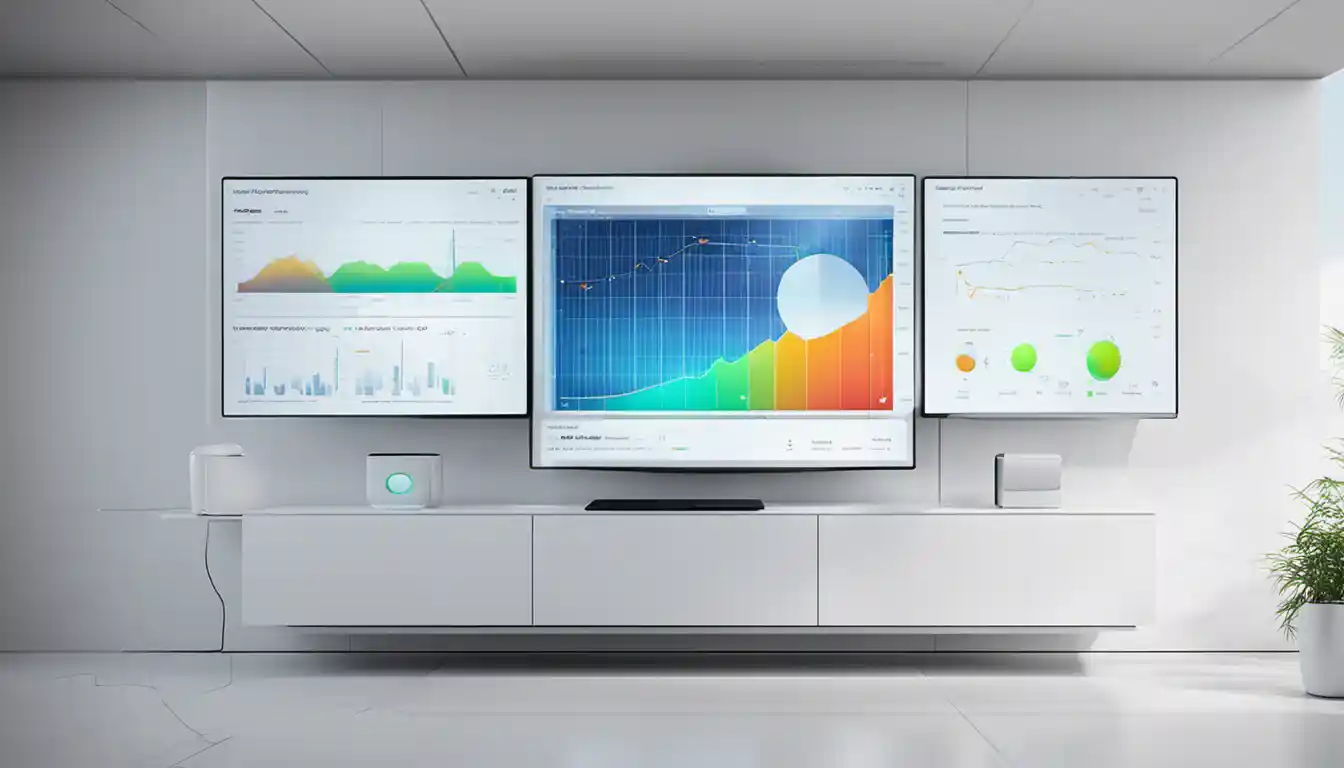Overview: The Importance of Solar Energy Storage
Solar energy can be stored primarily in two ways: thermal storage and battery storage. Thermal storage involves capturing and storing the sun’s heat, while battery storage involves storing power generated by solar panels in batteries for later use. These methods enable the use of solar energy even when the sun is not shining.
Understanding Solar Energy Storage: What is it?
Let’s go beyond the light bulb moment and uncover what solar energy storage actually entails. Simply explained, solar energy storage involves capturing and retaining the energy produced by solar panels so that it can be used at a later time when the sun is not shining. But how does it function? Well, during daylight hours, the photovoltaic cells within solar panels absorb sunlight and convert it into electricity. The excess produced electricity can then be stored in a variety of ways for later use, primarily through batteries or by generating heat. It’s the equivalent of having a bank account just for solar energy, where energy is deposited during the day to be withdrawn at night or during cloudy days.
The Crucial Role of Energy Storage for Solar Panel Owners
Solar panel owners, hear me out! Without a storage system, your panels could be working overtime, and you’ll never realize the benefits. While solar panels generate electricity during the day, what happens when the sun sets? That’s where solar energy storage methods come into play. They work as an energy backup, enabling you to use solar electricity even when the sun is not shining. By opting for a storage system, you don’t just save on electricity bills, you also decrease your reliance on the grid, making you more energy independent.
Benefits of Storing Solar Energy
Storing solar energy is a game-changer. Here’s why: it allows for energy consumption flexibility, reduces reliance on the grid, and contributes to a sustainable, green future. You know those times during a power outage when everyone’s panicking? With stored solar energy, you can be cozy in your home with your appliances running smoothly. Looking for more incentives? It lowers electricity bills and could potentially allow you to sell back excess power to the grid. Talk about a win-win!
Types of Solar Energy Storage Methods
When we talk about solar energy storage, we’re going beyond just batteries. Let’s dive deeper into some common and emerging solar energy storage methods:
The Concept of Electrochemical Storage

Electrochemical storage, in a nutshell, is about converting energy into a chemical form that can be later reversed to get back the energy. Think of it like a science trick, but here’s how it benefits you:
Solar Batteries
Solar batteries store electrical energy produced by solar panels. When the sun shines, the solar panels generate electricity, which charges these batteries. Later when energy demand peaks, the stored energy in these batteries can be used. Batteries, especially Lithium-ion types due to their longevity and efficiency, have become an increasingly popular choice in solar energy storage solutions.
Still wondering how these batteries function? Check out our piece on how a solar battery works.
Exploring Thermal Energy Storage
Thermal energy storage is the stashing away of heat. The heat produced by the sun can be stored and used for domestic heating or industrial processes.
How Solar Thermal Storage Works
So how does it work? Solar thermal energy storage systems absorb and collect heat from the sun’s radiation. The heat is then stored in a thermal reservoir. Later, it can be converted and used as heat or electricity.
Understanding Mechanical Storage
Mechanical storage might not be as common, but it’s certainly an emerging player in the field of energy storage. Here’s the overview:
Pumped-Storage Hydropower: An Overview

Imagine using water to store solar energy. Sound crazy? Well, it’s possible! A pumped-storage hydropower system does just that. When there’s excess solar energy, it’s used to pump water from a lower reservoir to an upper one. Then, when energy is needed, the water is released back to the lower reservoir, generating electricity in the process. Remarkable, isn’t it?
Other Noteworthy Storage Methods
Flywheel Storage
Flywheels are not new to the energy game – they’ve been around for decades, but they’re now playing a part in solar energy storage solutions. A flywheel motor spins to store the excess energy, and when the energy is needed, the spinning reduces, and the stored energy is released.
Compressed Air Storage
Imagine storing energy using just air. Compelling, isn’t it? Compressed air storage systems do exactly this. They use excess energy to compress air into a storage container, and when energy is needed, the compressed air is heated and expanded in a turbine to generate electricity.
Solar Fuels
Solar fuels go one step ahead and retain energy in the form of gas or liquid fuel, which can be used as a backup or transported for later use.
Virtual Storage

Virtual storage is more about the software—it schedules the use of appliances at home during the day when there is plenty of solar energy available, hence reducing the demand at night.
Finding the Best Solar Energy Storage Solution: A Comparison
Choosing the right solar energy storage method can be a daunting task, but it doesn’t have to be. Consider your energy consumption needs, the available space, and of course, your budget. Each method has its pros and cons. For example, while solar batteries are efficient, they require replacement after some years. Meanwhile, mechanical solutions like flywheels have a longer lifespan but require more initial investment.
Key Technologies Helping in Designing Solar Battery Storage: A Look
Advances in technology have been a boon to solar energy storage solutions. Quintessential technologies include Lithium-ion batteries, Redox flow batteries, and advanced lead-acid batteries. These technologies are fostering efficient, durable, and advanced solar battery storage designs.
Frequently Asked Questions on Storing Solar Energy
When it comes to switching to solar, I get a ton of questions every day. Let’s address the most common ones: Is a solar storage system worth it? Which is the best method for storing solar energy? How long can solar energy be stored? The simple answers are yes, it depends on your needs, and up to several weeks, respectively. But keep an eye out; we’ll soon be dedicating an entire post to frequently asked questions to go into the nitty-gritty.
Choosing the Right Solar Energy Storage Method: Guidelines and Criteria
Choosing the right solar energy storage method is like selecting a movie – you’ve got to consider your preferences, anticipated outcomes, and availability, amongst other factors. Can your region benefit from pumped-storage hydropower? Is a lithium-ion battery a feasible option? Ask yourself these questions while evaluating the accessibility, affordability, flexibility, and efficiency of your chosen system.
Conclusion: The Future of Solar Energy Storage Methods
We’re living in exciting times! The world of solar energy storage is bubbling with possibilities, and I can’t wait to see what the future holds. It’s a field where science meets sustainability, and the result is an ever-glowing beacon of green energy. With new technologies and solar energy storage solutions emerging, solar storage is not just an option – it’s becoming a necessity. So, enthusiasts, make a note—this is where the sun is shining. Are you ready to bask in its glow?




1 thought on “Solar Energy Storage Methods: Comprehensive Guide for Renewable Energy Enthusiasts”
Comments are closed.